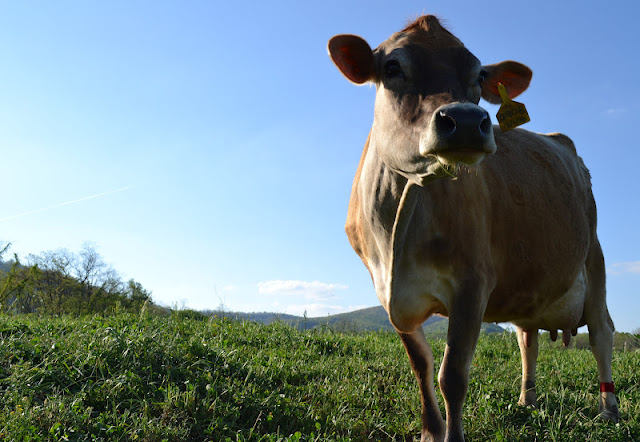As a child, I remember seeing an Amish family come into a store when I was visiting my grandparents in southern Indiana.
Actually, I remember
smelling them, for they smelled quite strongly of manure. And, being a fastidious child, I was mildly grossed out.
I wonder how that 10-year-old version of me would feel if she knew that, fifteen years later, she would be smelling that scent every day?
In fact, not only have I seen, smelled, and frankly touched manure almost every day this year since I began, but I have come to recognize that it is not that bad. Take the smell - something that once disgusted me is not really at all unpleasant. While certainly immediately recognizable for what it is, manure has a nutty, earthy, almost sweet scent, and probably only deeply unpleasant to those whose only experience with ordure comes when they are flushing it down a toilet.
Little do they know that manure is here to help us. Manure is our friend.
After the last two years, I consider myself something of an expert in manure. Well, maybe not an expert. A dilettante, perhaps. A dabbler, even.
It's pretty difficult to work on a farm (one with animals, that is) and
not know something about manure. It's omnipresent. It gets on one's shirt, shoes, hands, and occasionally in one's hair. It must be rinsed off of equipment and pitchforked out of the barn, employing myriad tools such as high-powered hoses, latex gloves and disinfectant.
And yet, there is much to admire about manure, which has long been recognized as a delightful fertilizer.
This is one of the brilliant bits about grass-fed grazing strategy. The farmer does not need to collect the manure and truck it to the field, dispersing it with his/her tractor. What a terrible waste of time and energy and labor this is. Instead, the intelligent farmer lets the cattle takes care of distribution logistics all on its own, by liberally sprinkling the field with their castings even as they replenish their gut with yet more grass for further deposits down the road.
This, of course, is the rub. Grass-fed and free-range animal husbandry allows livestock to live in a way that does not overcrowd the land with more excreta than it can handle. Factory farming, or the practice of raising hundreds, if not thousands, of livestock together in a confined space until they reach slaughter weight, is not nearly so considerate of the earth's needs, as evidenced by the dreadful stench. Anyone who has driven behind a pig truck on the interstate can attest to this.
I thought I would close with a list of my favorite manure synonyms, garnered from Thesaurus.com:
Buffalo Chips. Cowplop. Feces. Fertilizer. Maul. Compost. Guano. Meadow Muffin. Night Soil. Egesta. Evacuation. Excrement.




